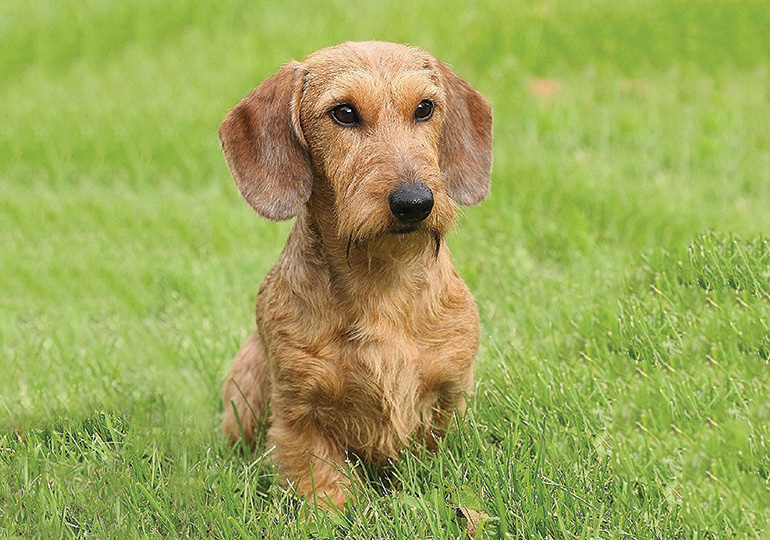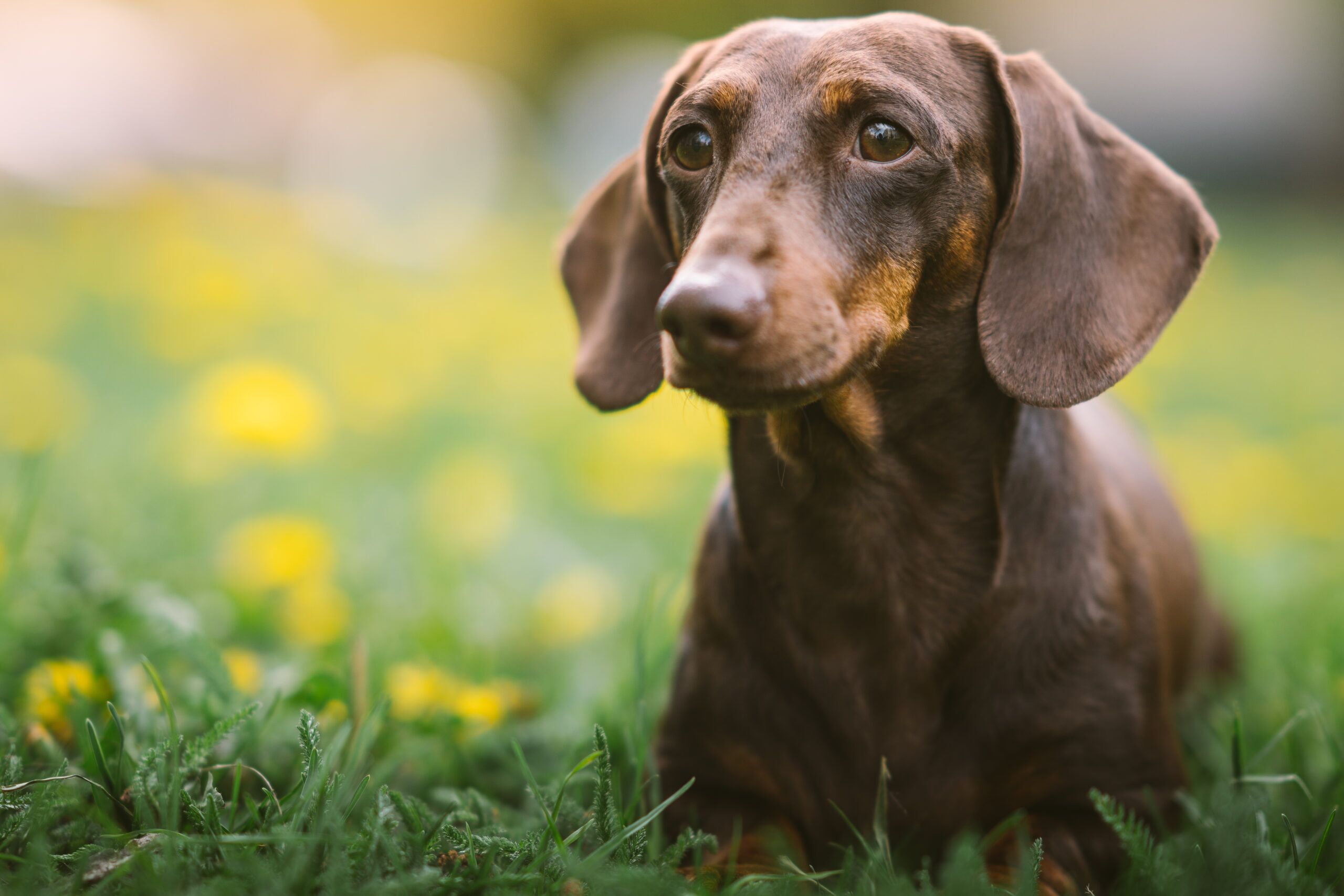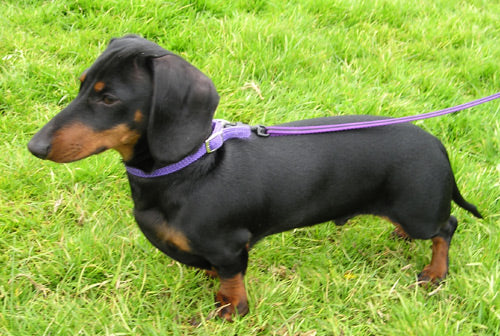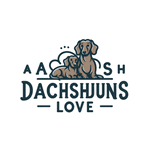The Dachshund, with its unmistakable elongated body and short legs, has captured hearts worldwide for centuries. Within this breed, two distinct sizes—Miniature Dachshunds and Standard Dachshunds—offer unique characteristics suited to different lifestyles. Both share the breed’s iconic appearance and lively personality, but key differences in size, temperament, and care needs set them apart. Whether you’re a seasoned Dachshund lover or considering one for the first time, understanding these differences can help you choose the best fit for your home. Let’s explore what makes each size special and how they compare.
Contents
Size and Weight: Spotting the Differences

The primary distinction between Miniature Dachshunds and Standard Dachshunds lies in their size. These differences influence their care, space requirements, and compatibility with various lifestyles.
Miniature Dachshunds
- Height: About 5–6 inches
- Weight: 8–11 pounds
- Build: Leaner and more compact
Miniature Dachshunds are petite and perfectly suited for apartment living or smaller households. Their portability makes them excellent travel companions, and they tend to require less food and exercise than their standard counterparts. Despite their small size, Miniatures have big, bold personalities that shine through in their playfulness and energy.
Standard Dachshunds
- Height: Around 8–9 inches
- Weight: 16–32 pounds
- Build: Sturdier and more muscular
Standard Dachshunds, with their larger frame and stronger build, are often a better choice for families with children or households with more space. Their higher energy levels and size make them more active and durable playmates, but they may require more exercise and space to thrive.
Temperament and Personality: What to Expect

While Miniature and Standard Dachshunds share a lively and confident nature, their size influences certain personality traits and energy levels.
Shared Traits
Both types are playful, affectionate, and intelligent. They bond closely with their families and often exhibit a fearless streak, a reminder of their hunting heritage. Dachshunds are loyal companions but can be stubborn, so consistent training with positive reinforcement is essential.
Miniature Dachshunds
Miniatures tend to be slightly more reserved than their standard counterparts, often cautious around strangers. While they love bursts of playtime, they are more content with relaxed activities like cuddling or lounging, making them ideal for quieter households or less active owners.
Standard Dachshunds
Standard Dachshunds are typically more outgoing and energetic, requiring more physical activity to stay happy. Their friendly nature makes them great for families with children or multiple pets, but their higher energy levels mean they’ll need plenty of playtime and exercise to burn off steam.
Health Considerations: Ensuring a Long, Happy Life

Both Miniature and Standard Dachshunds are prone to specific health issues, many related to their long backs and short legs. However, size-specific health challenges also exist.
Common Health Concerns
- Intervertebral Disc Disease (IVDD): A condition affecting the spine, common in all Dachshunds due to their body shape.
- Obesity: Excess weight can strain their spine and joints, exacerbating health issues.
Miniature Dachshunds
Miniatures are more prone to dental problems and patellar luxation (a dislocated kneecap). Their small size makes it especially important to monitor their weight and avoid excessive jumping, which can stress their joints and back.
Standard Dachshunds
Standards are at a higher risk for conditions like hip dysplasia and bloat due to their larger size. Regular exercise and portion-controlled diets are crucial to maintaining their overall health.
Grooming and Care: Meeting Their Needs

Both Miniature and Standard Dachshunds come in three coat types—smooth, wirehaired, and longhaired—which influence their grooming requirements.
Smooth-Coated Dachshunds
These require the least grooming—just occasional brushing and bathing to maintain their sleek appearance.
Wirehaired Dachshunds
Wirehaired coats need regular brushing and occasional trimming to keep their coarse texture neat and tangle-free.
Longhaired Dachshunds
Longhaired varieties require the most maintenance, with frequent brushing to prevent matting and keep their soft, flowing coats healthy.
Exercise and Training: Tailoring Activities
Dachshunds are an active breed, but their exercise needs vary by size.
Miniature Dachshunds
Miniatures require less exercise—short daily walks and indoor playtime are often sufficient. Their smaller size makes them easier to manage for first-time dog owners.
Standard Dachshunds
Standards need more physical activity to stay fit and burn off their higher energy levels. They thrive with longer walks, games of fetch, and even agility training.
Training is important for both sizes to manage their independent nature. Socialization from a young age helps curb undesirable behaviors like barking or chasing small animals.
Lifestyle Compatibility: Finding the Right Fit

The choice between a Miniature and Standard Dachshund often depends on your lifestyle, space, and activity level.
Miniature Dachshunds
- Best for singles, couples, or retirees with quieter households.
- Ideal for apartment living or homes without much outdoor space.
- Suited for less active owners who prefer a smaller, low-maintenance dog.
Standard Dachshunds
- Great for families with children or active individuals who enjoy outdoor activities.
- Prefer homes with a yard or access to open spaces.
- Require more time and energy to meet their exercise and training needs.
Conclusion
Miniature and Standard Dachshunds each bring their unique charm, making them wonderful pets for a variety of households. Miniatures are perfect for those seeking a smaller, lower-energy companion, while Standards thrive in active homes with room to roam. Regardless of size, both Dachshunds offer a lifetime of loyalty, love, and entertainment. With careful consideration of their needs and personalities, you’re sure to find the perfect Dachshund to join your family.
